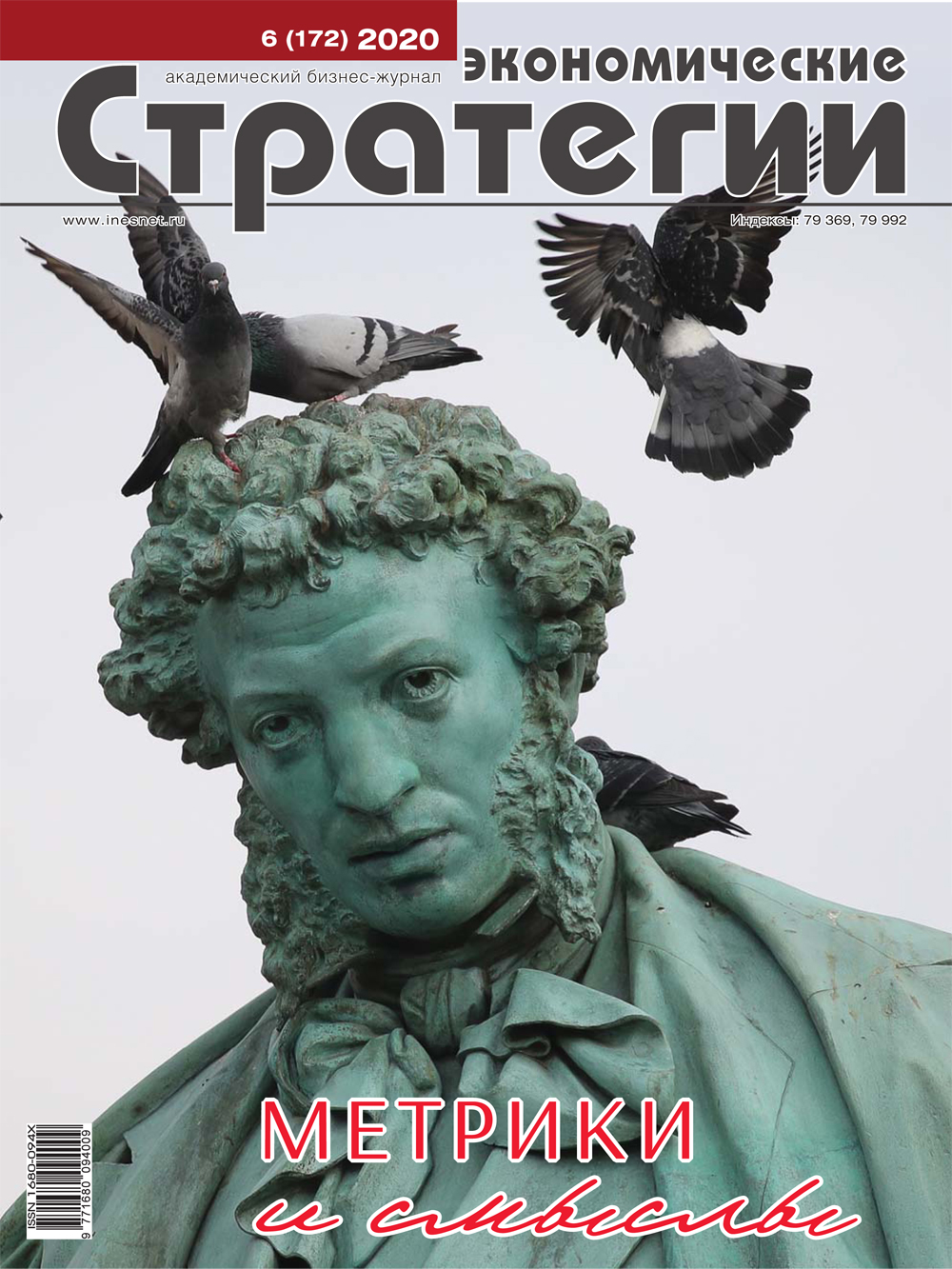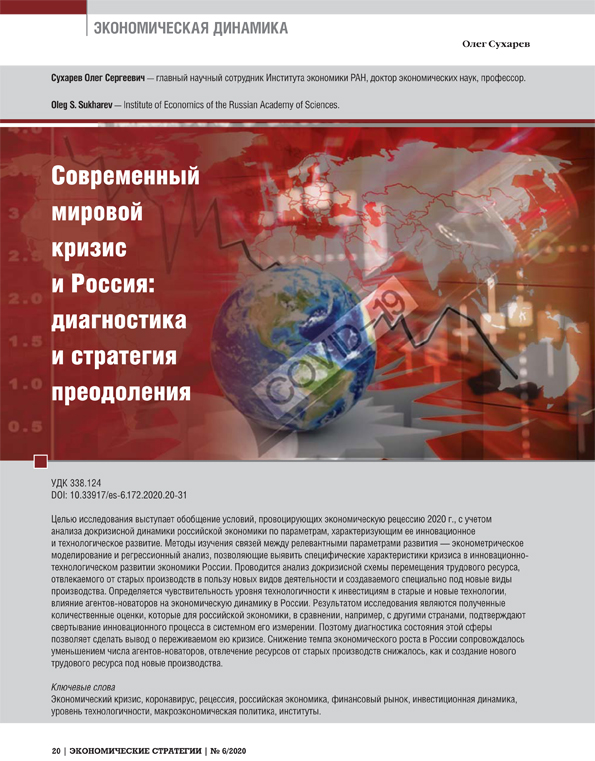Institutionalization of the Business Value Formation Process: Historical Stages and Modern Challenges
DOI: 10.33917/es-2.200.2025.54-61
The study was carried out within the framework of D. North’s concept of the institutional framework of interactions. The article presents the author’s periodization of the stages of institutionalization in the process of business valuation formation. The author provides an analysis of the development stages and transformation of the institutional framework of the process of business value formation, based on dominant beliefs. Analysis covers the stages from the “pre-cost” of business in early historical periods to specifics of the cost of business in the context of digital technologies.
References:
1. Gorodetskiy A. Ob osnovakh institutsional’noy transformatsii (teoreticheskiy aspekt) [On the Foundations of Institutional Transformation (Theoretical Aspect)]. Voprosy ekonomiki, 2000, no 10, pp. 118–133.
2. Loginova L.V. Institutsionalizatsiya ekonomicheskikh interesov: metodologicheskiy aspect: Formirovanie rossiyskoy modeli rynochnoy ekonomiki: protivorechiya i perspektivy [Institutionalization of Economic Interests: Methodological Aspect: Formation of the Russian Model of Market Economy: Contradictions and Prospects]. Pod red. K.A. Khubieva. Part 2. Moscow, Ekonomicheskiy fakul’tet, TEIS, 2003, pp. 259–265.
3. Oleynik A.N. Institutsional’nye aspekty sotsial’no-ekonomicheskikh transformatsiy [Institutional Aspects of Socio-economic Transformations]. Moscow, TEIS, 2000, 158 p.
4. Nort D.K. Pyat’ tezisov ob institutsional’nykh izmeneniyakh: Kvartal’nyy byulleten’ kluba ekonomistov [Five Theses on Institutional Change: Quarterly Bulletin of the Economists’ Club]. Minsk, Institut privatizatsii i menedzhmenta, 1998, pp. 3–15.
5. Nort D.K. Avtobiografiya. Lektsiya pamyati Al’freda Nobelya: Laureaty Nobelevskoy premii po ekonomike: avtobiografii, lektsii, kommentarii [Autobiography. Lecture in Memory of Alfred Nobel: Nobel Prize Laureates in Economics: Autobiographies, Lectures, Commentaries]. Pod red. V.V. Okrepilova. Vol. 2, Saint Petersburg, Nauka, 2009, pp. 297–315.
6. Adno Yu.L., Aleksandrova I.I., Baykov N.M., et al. Mirovaya ekonomika: global’nye tendentsii za 100 let [World Economy: Global Trends Over 100 Years]. Pod red. I.S. Koroleva. Moscow, Yurist”, 2003, 604 p.
7. Maddison А. The World Economy: a Millennial Perspective. Paris, Development Center of the OECD, 2001, 388 p.
8. North D.C., Thomas R.P. The rise of the Western world: a new economic history. Cambridge, Cambridge University Press, 1999, 171 p.
9. Gloveli G.D. Geopoliticheskaya ekonomiya v Rossii: ot diskussiy o samobytnosti k global’nym modelyam (XIX v. — pervaya tret’ XX v.) [Geopolitical Economy in Russia: From Discussions of Identity to Global Models (19th Century — First Third of the 20th Century)]. Saint Petersburg, Aleteyya, 2009, 204 p.
10. Nort D.K. Ponimanie protsessa ekonomicheskikh izmeneniy [Understanding the Process of Economics Change]. Moscow, ID GU — VShE, 2010, 256 p.
11. Novaya postindustrial’naya volna na Zapade: Antologiya [The New Post-Industrial Wave in the West: An Anthology]. Pod red. V.L. Inozemtseva. Moscow, Academia, 1999, 640 p.





